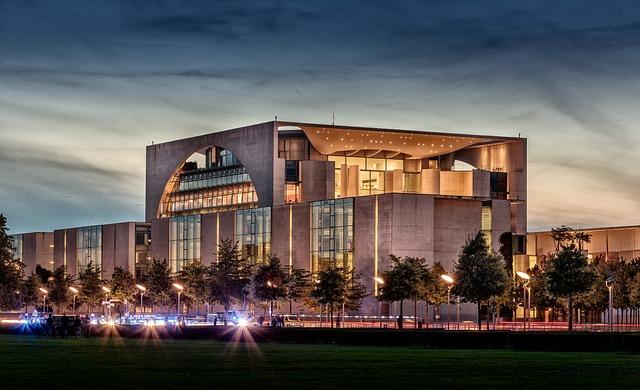In a world increasingly defined by the delicate interplay between security and personal freedoms, Pakistan stands at a pivotal crossroads. This South Asian nation, rich in history and culture, grapples with the profound challenge of ensuring the safety of its citizens while simultaneously honoring their civil liberties. From the bustling streets of Karachi to the serene valleys of the north, the echoes of this struggle resonate deeply within its society. As the specter of terrorism, political instability, and regional tensions looms large, the quest for a balanced approach to governance has become more daunting than ever. This article explores the nuanced landscape of Pakistan’s ongoing battle, delving into the intricate dynamics that shape its policies and the profound implications for its people. In a realm where the scales of justice often teeter, how does a nation define the line between protection and oppression? Join us as we navigate the complexities of Pakistan’s journey toward a harmonious coexistence of security and freedom.
Navigating the Complex Terrain of National Security and Civil Liberties
The quest for national security often finds itself in a tense dance with civil liberties, particularly in a nation like Pakistan, where historical traumas have framed public perception. The government faces the daunting challenge of safeguarding its citizens amid threats such as terrorism and cyber warfare, while simultaneously respecting the rights guaranteed to them by law. This delicate balance is influenced by various factors, including political will, judicial oversight, and consistent pressure from civil society groups advocating for freedom of expression and protection against unlawful detentions.
As officials navigate through this complex landscape, it becomes crucial to assess the implications of security measures on everyday life. Policies frequently labeled as necessary for public safety, such as surveillance and data monitoring, can unintentionally undermine fundamental freedoms. The extent to which these security initiatives affect the populace can be summarized in the table below, which illustrates common actions taken versus their perceived consequences:
| Security Measures | Potential Impact on Civil Liberties |
|---|---|
| Increased Surveillance | Loss of Privacy |
| Restrictive Anti-Terror Laws | Risk of Arbitrary Arrests |
| Media Censorship | Suppression of Free Speech |
| Online Monitoring | Chilling Effect on Digital Expression |

The Role of Governance in Empowering Citizens and Enhancing Safety
The efficacy of governance plays a pivotal role in creating an environment where citizens feel empowered and safe. A transparent and accountable government can cultivate a strong sense of trust between the state and its populace, enabling individuals to engage actively in civic matters. This engagement is vital for fostering social cohesion, as citizens who feel their voices are heard are more likely to contribute positively to community safety. Essential mechanisms include:
- Community Participation: Involving citizens in decision-making processes can lead to more effective policies that reflect the true needs of the people.
- Access to Information: Ensuring that government operations are transparent allows citizens to stay informed about policies that affect their lives.
- Accountability Measures: Establishing checks and balances helps reduce corruption, ensuring that leaders are answerable to the citizens they represent.
Furthermore, effective governance integrates safety and freedom in a way that reassures citizens while safeguarding their rights. The establishment of comprehensive security frameworks—coupled with respect for civil liberties—supports a balanced approach. This dual focus can be illustrated through the following strategic elements:
| Governance Strategies | Impact on Citizens |
|---|---|
| Strengthening Law Enforcement | Enhances public safety while respecting personal freedoms. |
| Promoting Human Rights Education | Empowers citizens with knowledge of their rights. |
| Encouraging Civic Engagement Initiatives | Fosters a culture of participation and accountability. |

Exploring the Impact of Extremism on Society and Policy Making
In Pakistan, the emergence of extremist ideologies has significantly influenced both societal dynamics and the landscape of policy making. Radical groups often exploit socio-economic grievances, fostering a sense of disenfranchisement among various communities. This exploitation can lead to widespread fear, prompting the government to implement stringent security measures that may inadvertently infringe on civil liberties. The tension between ensuring public safety and maintaining individual rights has become a central theme in contemporary governance. Policymakers must navigate the complex interplay of public opinion, security needs, and the pressing demand for civil freedoms, often leading to a precarious balancing act that can alienate certain segments of the population.
Moreover, the arrival of extremism has left an indelible mark on the legislative framework of Pakistan. There is a trend towards enhanced surveillance and restricted freedoms aimed at countering radicalization, but these measures often sacrifice fundamental rights in the name of security. The challenge arises as citizens strive to reclaim their autonomy, advocating for policies that promote inclusive governance and social harmony. The following table illustrates the impact of various policies on societal freedoms and safety perceptions:
| Policy Measure | Impact on Society | Public Perception |
|---|---|---|
| Increased Military Presence | Heightened security, fear among citizens | General acceptance but growing concerns |
| Surveillance Programs | Loss of privacy, public distrust | Mixed reactions; some value security over privacy |
| Education Reforms | Awareness and reduction of extremist ideologies | Positive outlook among progressive sectors |

Strategies for Promoting a Harmonious Balance Between Rights and Responsibilities
Achieving an equilibrium between individual freedoms and collective responsibilities is essential for fostering a thriving society. One effective approach to this balance involves promoting public awareness campaigns that educate citizens about their rights while simultaneously emphasizing the importance of civic duties. These initiatives can include workshops, seminars, and community discussions that encourage active participation and dialogue. Furthermore, collaborative efforts between government bodies, civil society organizations, and the media can amplify the message, reaching a wider audience and instilling a sense of ownership and responsibility among citizens.
In addition, establishing clear legal frameworks that delineate the scope of rights and responsibilities is crucial in maintaining order and protecting freedoms. Implementing accountability mechanisms ensures that individuals and authorities alike adhere to these frameworks. This can be achieved through regular reviews and updates of laws that take into account the evolving needs of society. The establishment of community advisory boards can facilitate ongoing assessments and suggestions, enabling an inclusive process where diverse voices contribute to shaping policies that respect both rights and responsibilities.
Insights and Conclusions
In the intricate tapestry of Pakistan’s journey, the threads of security and freedom are woven together with both tension and hope. As the nation navigates its ongoing struggle, the delicate balance between safeguarding its citizens and fostering an environment of liberty remains a significant challenge. The resilience of the Pakistani people, coupled with their unwavering desire for both safety and autonomy, echoes throughout the corridors of history.
As we conclude our exploration, it is evident that the path forward will require thoughtful dialogue and collaborative efforts from all corners of society. The pursuit of security should not eclipse the fundamental rights that define humanity; rather, they must coexist in a harmony that empowers the nation to thrive. Each step taken toward reconciliation between these two pivotal concepts holds the potential to shape the future—a future where citizens feel both protected and free.
the narrative of Pakistan is not simply one of struggle, but also one of opportunity—a chance to redefine what it means to be secure in a free society. As the world watches, the choices made today will resonate through generations, offering a glimpse of what may yet be achieved when security weaves seamlessly with freedom.



